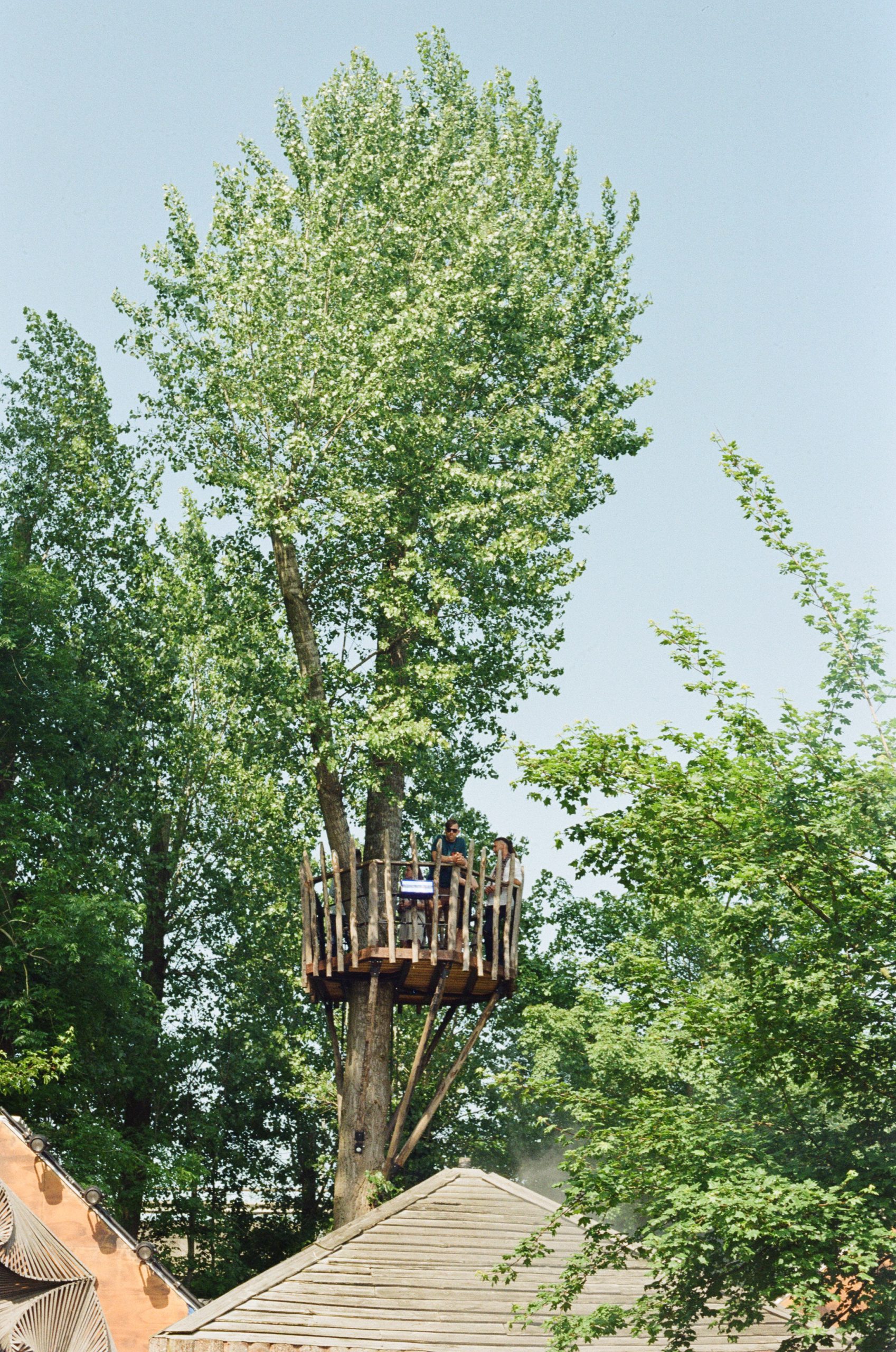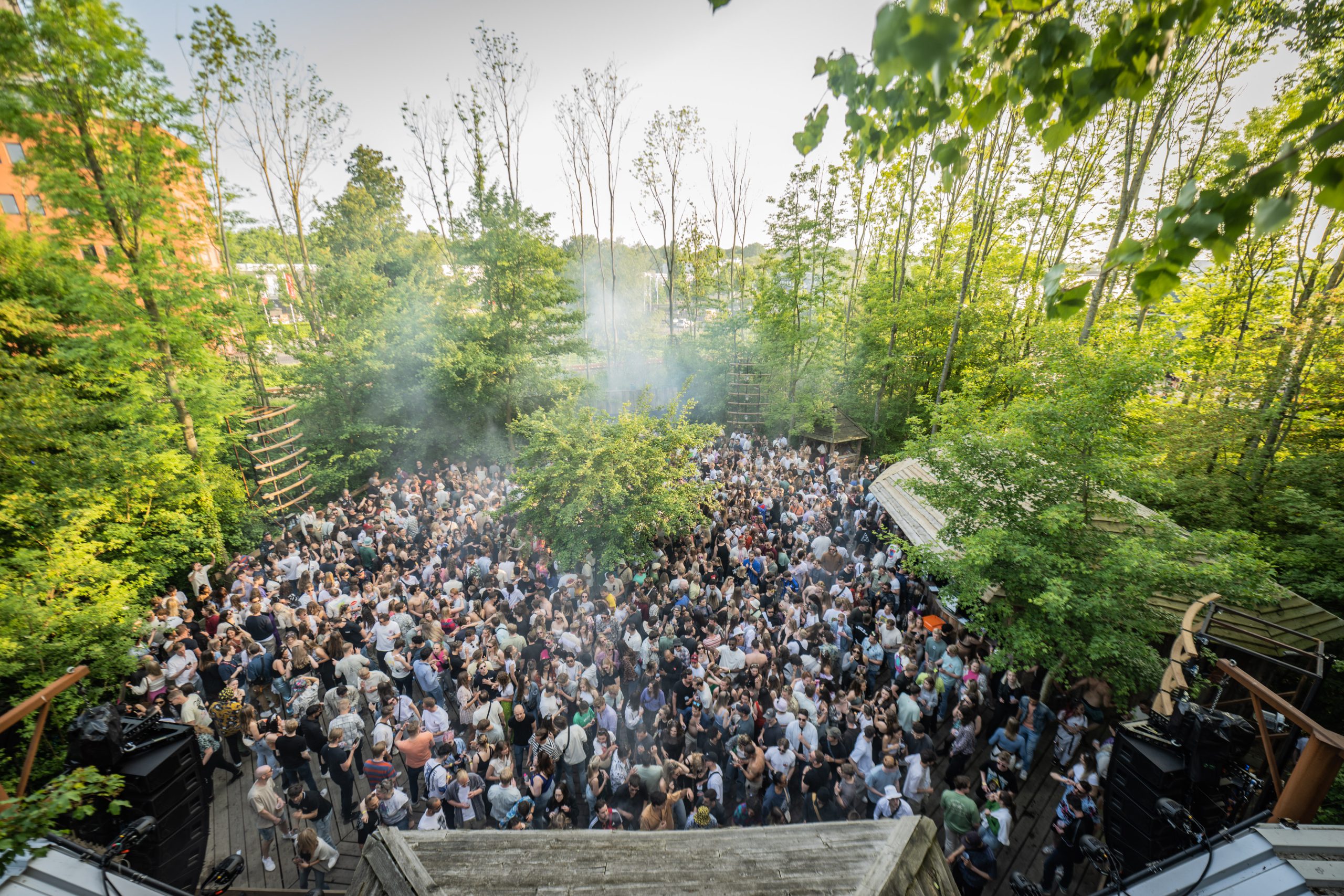One of the most beautiful spots on our festival grounds is the Treehouse on the Forest stage. In collaboration with Trees for All, a collective that plants trees worldwide to improve the climate, we have devised an exciting activity for this year: the Treehouse space will now be accessible to Paradigm Festival attendees. There will only be a limited number of spots available. It is important to note that a Treehouse ticket does not grant admission to the event itself; therefore, these tickets are only for event ticket holders. All Paradigm Festival ticket holders will receive an email with a special link to the ticket section this week. The proceeds will support Trees for All. By obtaining a ticket, you not only guarantee yourself a great view but also contribute to this important cause.
You might be curious about the origin of the Treehouse. Last year, the Treehouse, a 13-meter high structure, was constructed in an old poplar tree above the DJ booth of the Forest stage. OneTwoTreehouse built the Treehouse in a non-invasive manner, ensuring no harm to the tree. Although the anchors supporting the hut do cause some minimal damage to the tree, trees have mechanisms to cope with this type of injury. According to Stella, the creator of the Treehouse, it is akin to a broken branch: the resulting cavity partially interrupts the sap flow, but the tree immediately begins to heal the wound by selectively storing resins and oils to seal it. Over time, the tree will develop reaction wood around the affected area, making it stronger and eventually incorporating the anchor as it grows. Thanks to their significant energy reserves, trees can easily handle such situations. The difference between an anchor injury and a branch break lies in the way the cut is made. Stella and her colleagues skillfully carved the tree so that the placement of the anchor promptly closed off the incision. Consequently, virtually no insects or fungal spores could enter, which is typically a concern when an opening is created from a broken branch.

When you purchase a ticket, it can be exchanged for a wristband on the day of the event, which grants you access to the Treehouse. These wristbands are provided by Plantjebandje. Plantjebandje ensures that events and festivals become more sustainable. The wristbands are made from hemp and embedded with flower seeds. This way, guests receive something extra beautiful after the event. Traditional wristbands are usually made of polyester and plastic, which are environmentally unfriendly. In contrast, the wristbands provided by Plantjebandje are designed to naturally break down and disintegrate in the soil after use. You can plant it in your garden or in a flower pot on your balcony.
Paradigm and sustainability in general:
- We no longer use plastic coins and disposable cups. Instead, we have implemented a deposit cup system and a ‘pin only’ payment system at the bars.
- We have become a member of the Green Deal Circular Festivals group. Green Deal Circular Festivals (GDCF) is a collaboration between festival organizations, the Dutch government and the European Union. All parties are working together to create fully circular festivals by 2025.
- We have established various educational programs centered around our vegetable garden and the shared workshop, in collaboration with organizations such as special needs education and the communal workshop.
- Volunteers continually plant new greenery on the premises, often in partnership with artists.
- A fixed power network, powered by battery generators instead of traditional and polluting diesel generators, has been installed on-site.
- Sustainable innovations are regularly tested during the festival through collaborations with organizations like Innofest.
- All food stands exclusively offer vegetarian and vegan options.
- Stages, buildings, art, and decorations are created using as much second-hand (waste) material as possible.
- Paradigm is a co-founder of GROENN//, a collective and consultancy for sustainable events.
- During the COVID-19 pandemic, three volunteers from the Fair Future Generators conducted an ecological assessment of the Paradigm grounds.
